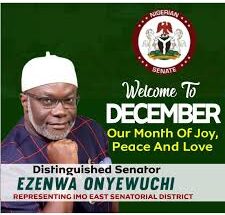“In a country well governed, poverty is something to be ashamed of. In a country badly governed, wealth is something to be ashamed of.” – Confucius
Recent numerical facts culled from the NBS have revealed that 133 million Nigerians are battling with extreme poverty and this connotes that we are confronted with a dreaded disease wearing and carrying many faces for which we ought to be ashamed of ourselves, albeit huge wealth is in our midst.
Indeed, poverty is a merchant of hunger and starvation and the mother of all human degeneration. We must go into prolific memorisation to view poverty as a new socioeconomic colonizer, and a typical prototype for misery, deprivation, penury, poorness and has not been able to combat diseases, illiteracy, homelessness, lack of electricity, poor drinking water, poor sanitation and under clothing among others so that its protruding expansion is vehemently resisted. Certainly, the damaging profiles of poverty are triggering squalid conditions for the general populace.
The implications of poverty for a sustainable democracy are tremendous and disastrous for Nigeria vis-a-vis resource plundering on a few citizens. For instance, the US economy, which is nearly 60 times larger than Nigeria’s, pays members of its Congress less than half of the earnings of their Nigerian counterparts. It is also part of our financial exuberance that an average legislator’s pay is more than 50 times Nigeria’s GDP per capita while basic education is in perpetual dilapidation. Many states are unwilling to pay 30,000 naira minimum wage and in some states civil servants are being owed months’ salaries while their governors are swimming in large scale corruption.
Also, investigations into the affairs of the National Assembly have shown credible facts as follows: the legislative chamber has less than 10,000 individuals in its pay roll; the yearly allocation for the Assembly surpasses the annual budgets of 21 of Nigeria’s 36 states. The capital expenditure for health or education in 2020 was 20 billion naira less than the annual salary of the National Assembly! These blatant discrepancies have conveniently found their way into our scheme of national affairs in which poverty is winning and extending its territories.
If leaders have crashed in their visionary mandate not to conquer penury by reshuffling their political thoughts to favour policies and projects which cannot assuage the proportion of deprivation, insecurities will heighten significantly, culminating in multifaceted explosions such as many becoming slaves in their country. The fact remains that research has shown rising poverty in Nigeria as coinciding with escalating insecurities with a particular reference to the Northern Nigeria. Thus, the more our rulers dispel this symbiotic relationship, the worst days are coming ahead for which prosperity will hold them accountable!
From the socioeconomic point of poor performance, poverty has inflicted monumental harms to the people that what is needed is a fierce counter-attack from the government as the lead emancipator of the deprived. It will not augur well for us to negotiate with poverty through lackadaisical attribute of the government which mainly believes in singing the song of eradicating poverty but is dancing to a different tune. Deprivation is not irredeemable when a cogent political will is deployed. In a nutshell, lots of vague theories have acquired prominence on how to free Nigerians from penury but the pragmatic dimensions have always been endless illusions.
In the last research conducted in 2019, the World Poverty Clock, created by Vienna- based World Data Lab, stated that the number of Nigerians living in poverty stood at 91 million people. In 2018, Brookings Institution projected that Nigeria had overtaken India as the Poverty Capital of the world, with 86.6 million extremely poor people. Defiantly, poverty has been on the rapid rise and this is a big trial for our rulers to halt the spread of its tragic occurrence and justify their leadership as result-oriented.
A colony of abject poverty is therefore something to be forfeited for an enduring nation of endless bliss and prosperity. From the above outcomes of the conducted researches in the past, the authorities were unsuccumbing to the aspirations of the time. There was insolvency of political vigour by our leaders to beat misery unlike the one showcased in a bid to win elections. To our disgust, poverty was not pegged down to the lowest ebb in the aftermath of those reports.
Going by the estwhile flops to contain the menacing threat, it is very likely that this recent report may also not be accorded the attention it deserves and another bad history of leadership decadence will be recorded. This is inspite of the fact that world leaders have finally come to the realization that poverty is the systematic danger facing humanity and are taking proactive measures and this has been a major security dilemma to development experts.
Wars on poverty are not fought and won on paper and speeches alone. They are fought with invigorating spirit of rescuing humanity and offering it a new lease of life. If governments cannot see poverty as a dangerous foe and conquer it or reduce it to the barest minimum, then they are committing the greatest bluffs and the profound agony of poverty bearers will never forgive them.
In collaboration with the World Bank, the NBS suggested in 2019 three types of reforms to raise Nigerians out of poverty. One, macroeconomic reforms ( including fiscal, trade and exchange rate policy) should be implemented. Two, there should be policies to boost the productivity of farm and non- farm household enterprises. Three, there should be improvement in the access to electricity, water and sanitation while bolstering information and communication technologies.
Catastrophically, poverty is an artelery force encroaching and occupying the larger part of the country to install its own poverty republic. This is a warning sermon to the government to repel its invasion and save the country from neo-colonisation by poverty.
Abdu Abdullahi,
Kano




